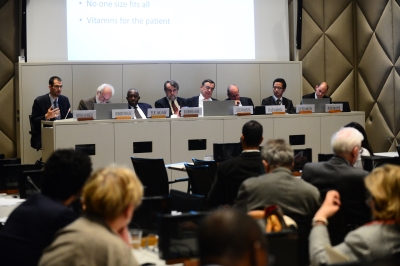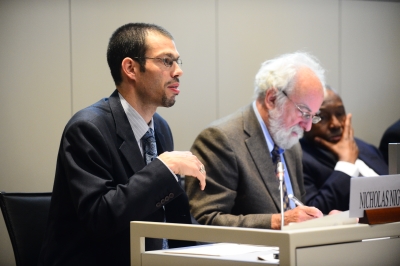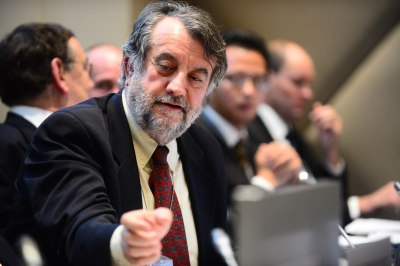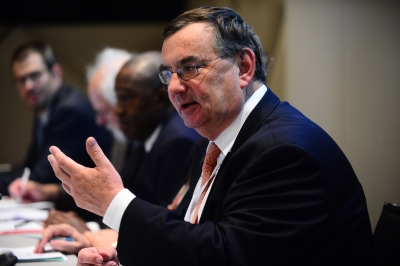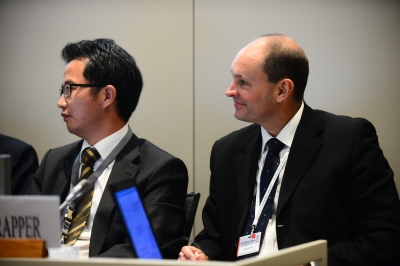![]()
SESSION 29: PLURILATERALISM AGAINST MULTILATERALISM?: A MULTI-STAKEHOLDER PERSPECTIVE*
Tuesday, 25 September 2012, 18:15 — 20:15, Room S3
This session aimed to discuss the concepts of multilateralism and plurilateralism and to assess the potential impact of plurilateral agreements within the WTO multilateral trading system. Plurilateral agreements can be concluded by three or more WTO members and cover trade issues labelled WTO plus, extra or minus. They can be adopted both within and outside the WTO framework. They can be "preferential" agreements or agreements based on the most-favoured-nation (MFN) principles. Future plurilateral trade agreements negotiated within the WTO could bring more transparency, and third parties' rights would be better protected under the WTO dispute settlement procedure.
If a plurilateral agreement is adopted outside the WTO framework, other WTO members need not be included, and negotiations would not include other WTO members not party to the agreement. It would then lead to the creation of a "soft law", since a plurilateral agreement outside the WTO would not have the same legal and political weight and could not aspire to an "international standard". A plurilateral trade agreement within the WTO that extends MFN benefits to non-treaty WTO members would avoid trade distortions. Conversely, if a WTO-based plurilateral trade agreement is kept as a preferential agreement (non-MFN), it would avoid free-riding by non-members and provide an incentive for others to join.
Speakers and the audience were invited to ponder the following questions:
· To what extent is it possible to "multilateralize" plurilateralism?
· What are the different "options" to negotiate plurilateral agreements?
· What are the implications of plurilateral agreements for the multilateral trading system?
· Besides services, could other trade areas be negotiated through plurilateral approaches? If so, which areas?
· What are the strategies and tactics available to developing and least-developed countries in the negotiation of plurilateral agreements?
1-Summary
2-Professor Raymond Saner
3-H.E. Mr Yonov Frederick Agah
4-Mr Lu Xiankun, Counsellor
5-Mr Nicholas Niggli
6-Professor Robert Wolfe
7-Photos of the event
